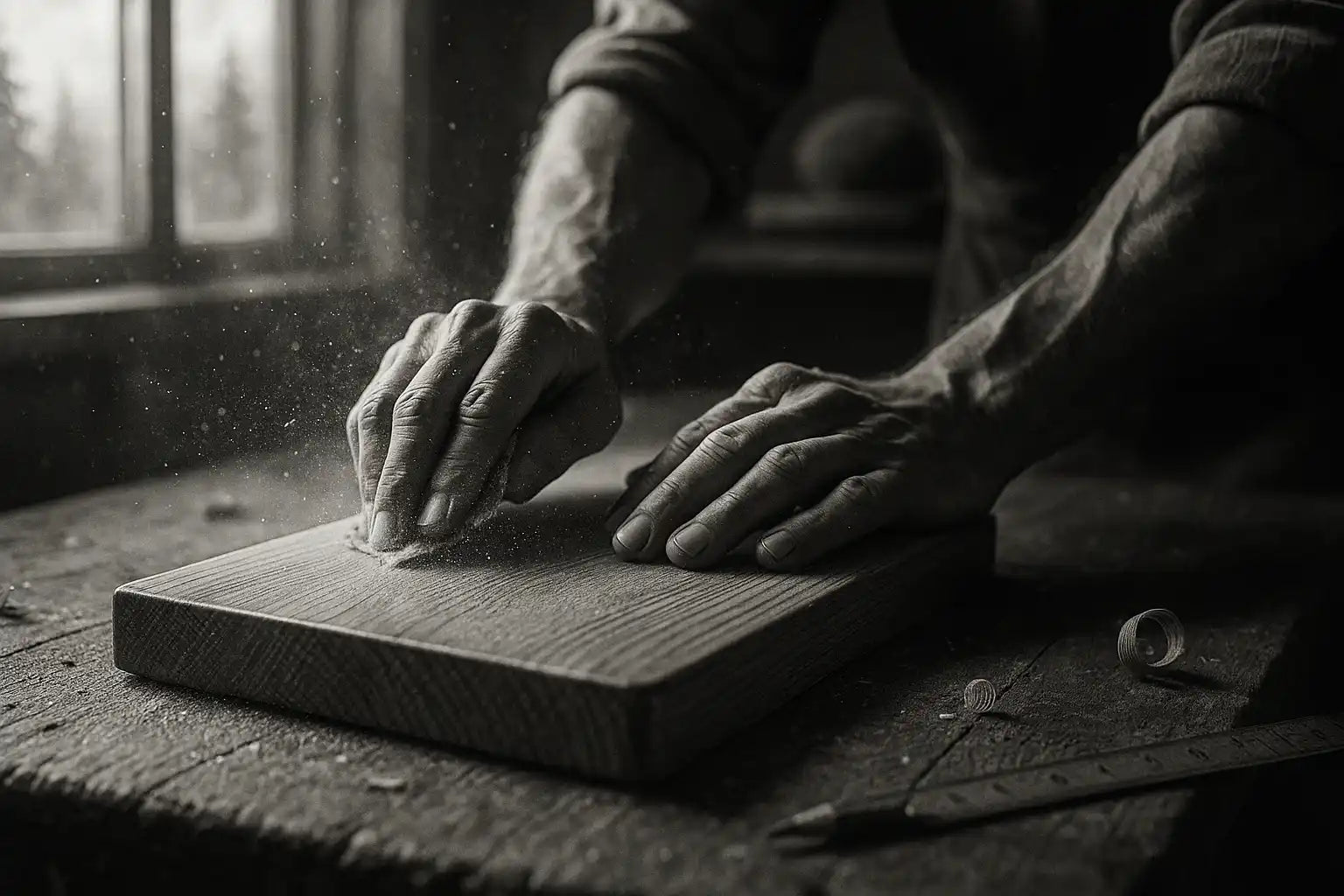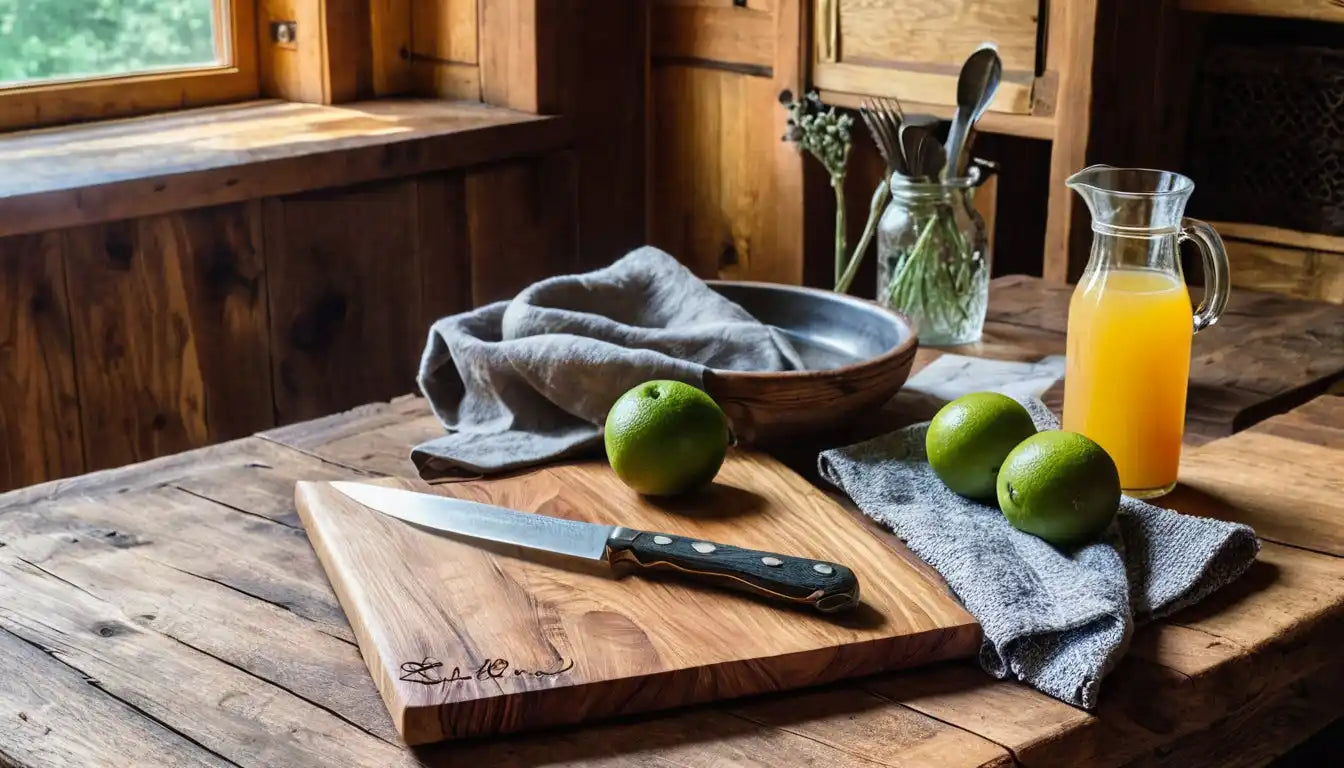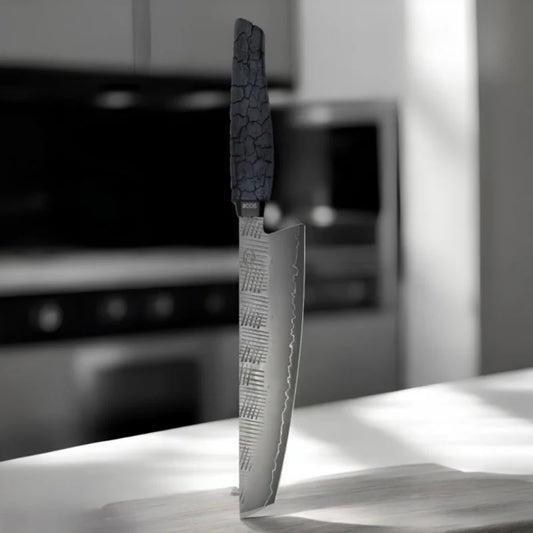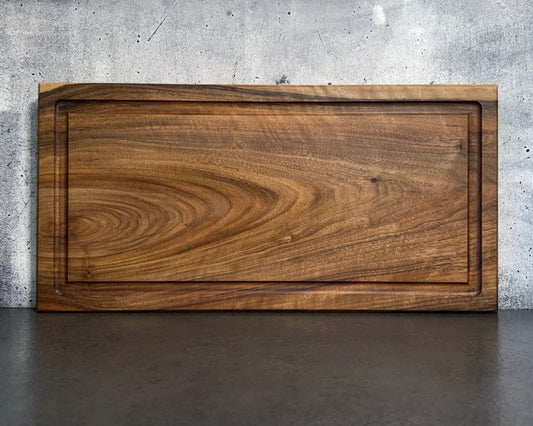In short: Damascus knives retain their sharpness for a long time, but they require proper care. Water stones are the best method for precise and gentle sharpening. Mistakes like using a dishwasher, the wrong sharpening steel, or overly coarse abrasives can permanently damage the blade.
1. Why Damascus knives need special care
Damascus knives are often ground thin and are exceptionally sharp. These delicate blades benefit from controlled sharpening , as incorrect methods can cause micro-chips or irreparable damage. Choosing the right technique significantly extends their lifespan.
2. The best methods for sharpening
Water stones (recommended)
- Start with 1000–2000 grit for basic sanding.
- Fine grinding with 3000–8000 grit for extreme sharpness.
- Water the stone beforehand and guide the knife at an even angle.
Ceramic or fine diamond rods
- Suitable for quick resharpening in between.
- For experienced hands only – incorrect angles can cause damage.
Professional grinding service
- Useful for high-priced blades or when there is no experience.
- Look for a specialist in Japanese or Damascus knives.
3. The correct grinding angle
The ideal angle for Damascus knives is 12–15° per side . European blades are often somewhat more robust (15–20°). More important than the exact degree is the consistency of the angle during sharpening.
Practical tip: Use grinding aids or mark the cutting edge with a felt-tip pen to better control the angle.
4. Common sharpening mistakes
- Dishwasher: Heat, water and chemicals ruin the cutting edge.
- Wrong sharpening steels: Coarse steel rods break fine Damascus blades.
- Grain size too coarse: Removes unnecessary amounts of material, reduces service life.
- Irregular movements: Lead to uneven angles and unclean grinding.
- No stropping: After grinding, there is no polishing (e.g. with leather), which makes the blade appear blunt.
5. Regular care & sharpness maintenance
- Correct base: wooden or end-grain board instead of glass, marble or plastic.
- Hand wash: Clean & dry immediately.
- Oiling: Occasionally protect the blade with camellia oil.
- Storage: magnetic strip, knife block or blade protector.
- Resharpening: It is better to resharpen gently on a regular basis rather than aggressively resharpening infrequently.
6. Mini FAQ
How often should you sharpen a Damascus knife?
Depending on usage. If used daily, finely resharpen every 6–8 weeks; if used infrequently, 2–3 times per year is sufficient.
Do I absolutely need water stones?
For the best possible results, yes. Alternatives like ceramic rods are only intended for short-term resharpening.
Can I sharpen my Damascus knife myself?
Yes, with practice and the right tools. For valuable knives, it's worth having a professional sharpener as a reference point.






















